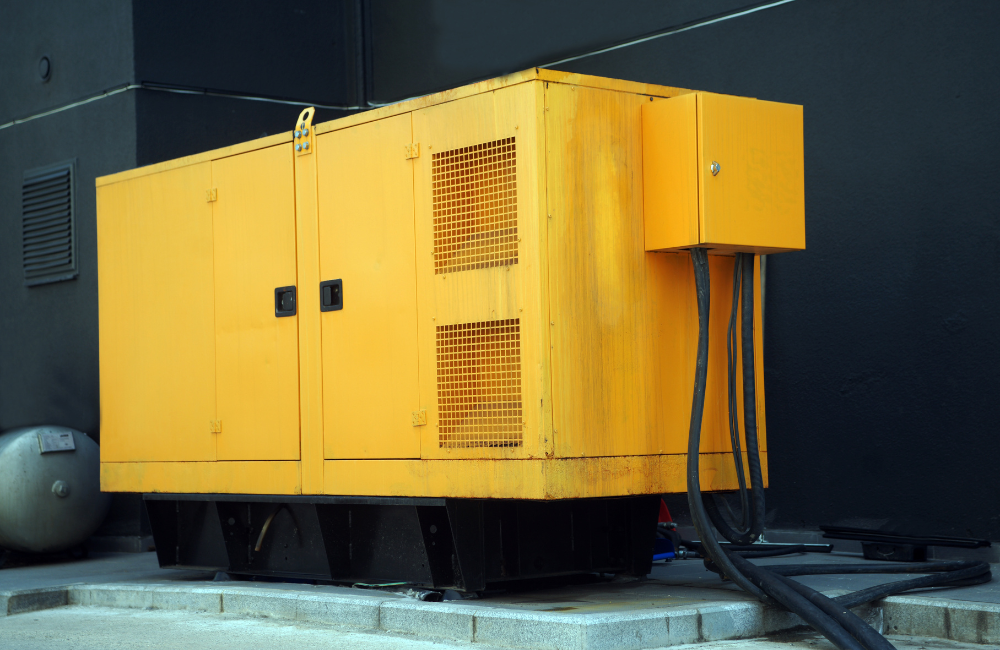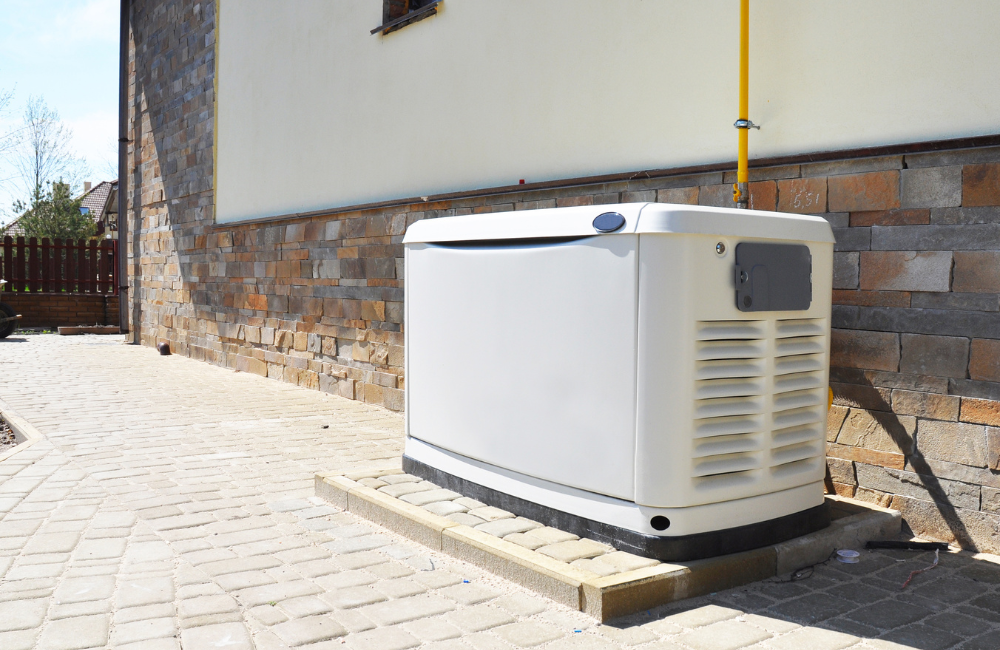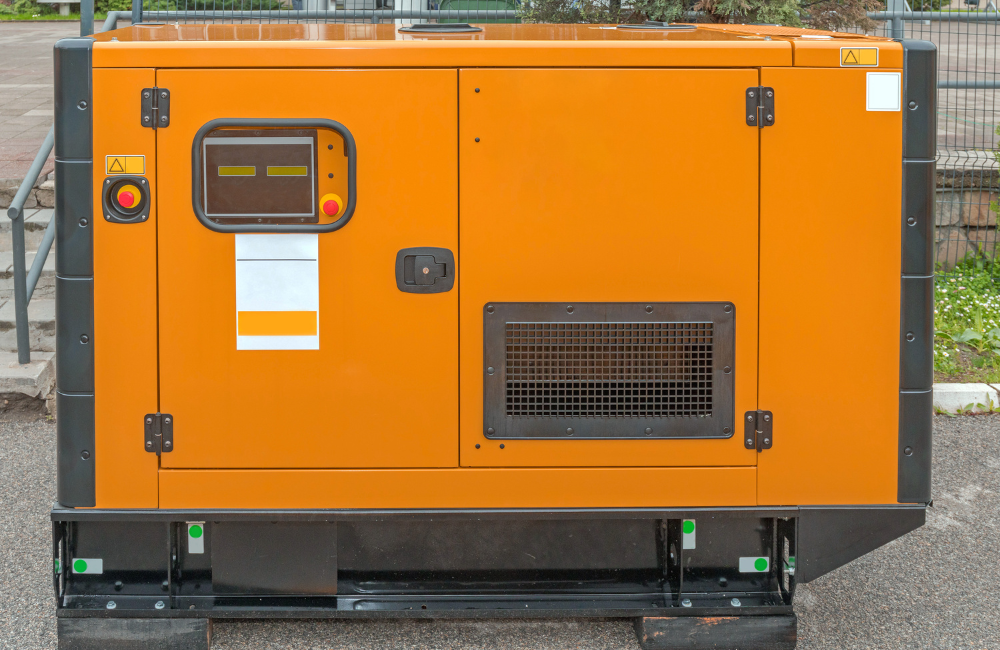
Current Affairs: Residential Vs Commercial Generators
A generator is a machine that turns mechanical energy into electricity for your power needs. That’s a simple definition. So, a generator is a generator? Well, not quite. While all generators are made up of the same basic parts—an internal combustion engine, alternator, stator, fuel tank and outlets—the same generator isn’t the right fit for every situation. Generators run on different fuel types, come with various power capacities and meet a range of different needs. One of the biggest divisions is the difference between residential and commercial generators.
What can power a mine should be able to power a humble house, right? Yes, but there’s more to it than that. While a commercial generator is merely too excessive for a residential home, major issues can arise from trying to power commercial premises with a residential one. Without a commercial generator, you run the risk of not being able to adequately supply power to your operation, which can have life-threatening consequences if it’s a hospital or other health facility.
Making the right choice between commercial vs. residential generators is an essential part of choosing the best generator to meet your needs. Other factors include power requirements, noise levels, running time and costs.
An Overview of Residential Generators
Home generators are useful for providing power to household appliances, devices, and home systems during power outages and emergencies. A home generator can connect directly to the house’s electrical system or you can pack it in a van to take on a trip and power up your campsite.
In Australia, both portable and standby generators are popular options for backup residential power. Portable generators are typically small, easy to carry and often come with wheels. Inverter generators, which work by reversing the electrical wave, are very similar to portable generators but tend to be quieter and lighter. Standby generators are placed in designated spaces outside the home and are connected via a transfer switch to the house’s electrical system. Because they tend to run on propane or natural gas, standby generators can connect straight to the home’s utility service.

Like all generators, residential generators in Australia come in different power capacities; however, they don’t require the same output as industrial or commercial generators. A generator well under 100kVA is usually enough to power a stand-alone home or townhouse. Residential generators are also subject to local building codes and regulations.
An Overview of Commercial Generators
Commercial generators are built to handle large loads and have larger capacities than the kind you’ll find in the residential sector. Commonly used by small-to-medium-sized businesses and in industries like construction and mining, commercial generators are useful both as backup power sources during outages and as primary power sources in remote and off-grid locations. Industrial generators are very similar to commercial generators but are built to be even bigger and more powerful, making them perfect for heavy-duty jobs and outback locations. Generators are so useful in the business world with demand continuing to increase. The global generator market is expected to grow to USD 44.49 billion by 2030.
Commercial generators allow business as usual to continue uninterrupted in locations from supermarkets to factories, hotels and office buildings. They also provide stable sources of life-saving power to hospitals and prevent the leaking of personal information in data facilities. If you’re a business owner, a commercial generator protects your profits, your people and your reputation.
Choosing and installing the right commercial generator involves careful planning including compliance with local regulations and existing infrastructure. From that point on, there’s the ongoing process of refuelling, maintaining and servicing the generator in order to ensure it keeps running at its best.
Commercial generators play a vital role in business operations in Australia, but are they a substitute for residential generators?
Key Differences and Similarities Between Residential and Commercial Generators
The key difference is that commercial generators are built to handle higher power loads. They contain larger engines and often higher-grade components to keep up with the demands of a large-scale event, mine or work site.
They are also quieter. The high portability of residential generators comes with compromising sound insulation. Residential generators simply can’t generate enough electricity to keep a business’s operations running, while a commercial generator is excessive for a house. Another important consideration is that a residential generator doesn’t always spring into action straight away. In a power outage, there may be a slight delay before the generator kicks into gear. In a business environment, you don’t always have these precious seconds to lose.
Commercial generators have larger fuel tanks, often require more regular maintenance and are frequently subject to stricter safety, environmental and zoning requirements. Due to their larger size and additional components, a professional-quality generator needs a professional to install it. While it may be tempting to save money by using a residential generator to power your business needs, it will only work against you in the long run. For long-term success, opt for the right commercial generator for your business.
Which Generator Will Suit Your Situation?

You need to choose a generator that meets or exceeds the maximum power output of your operation. To calculate this, you can add up the number of appliances or tools you plan to have running at the same time, list both the start-up and running power usage for each, tally up the total power usage and add an extra percentage (e.g. 10%) as a safety net. Then choose a generator with a maximum level of power equipped to handle that.
Generator sizes are in kilo-voltamps (kVA), which have to be converted into watts so you can determine how much power you need for your devices. Use Total Generators’ power calculator to determine the generator best suited for your requirements. If you need any expert advice, the Total Generators team has decades of experience to draw from.
Apart from the power capacity, factors to consider when choosing the right generator include fuel type, power requirements, noise levels, emissions, support and warranty, area regulations and whether or not it comes with a transfer switch so that you can switch between generator and grid power as necessary.
Hire Diesel Generators at Total Generators
For over 25 years, Total Generators has been providing a reliable supply of power to industries like construction, mining, festivals and events. With offices in Brisbane, Cloncurry, Moranbah and Katherine NT, Total Generators is well-positioned to provide the best possible generators to clients both in the city and in rural and remote locations.
If you’re looking for commercial generator hire, Total Generators offers an end-to-end service focusing on delivery, supply, installation and support. Our quality diesel generators for hire come in various levels of voltage including units massive enough to power big underground mines and festivals.
As well as generators for hire, Total Generators provides 24/7 emergency support and fuel management and refuelling. We can monitor the fuel consumption, formulate a diesel fuel management system and visit for service and inspections.
Whether you’re ready to book a generator or just have a project you could use some expert advice on, contact the Total Generators team to get started.


